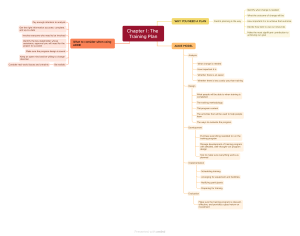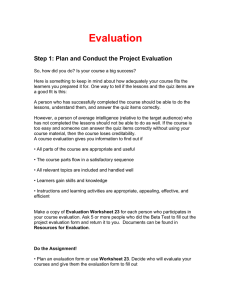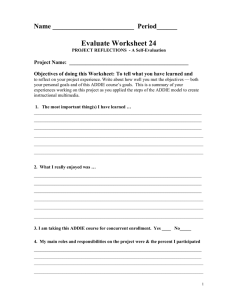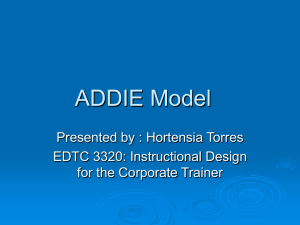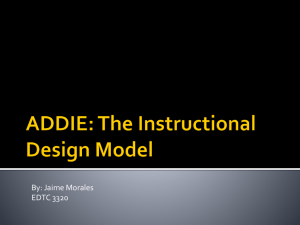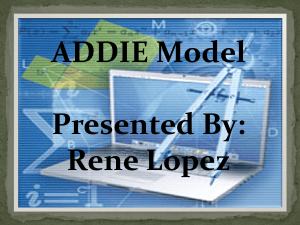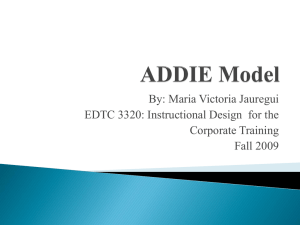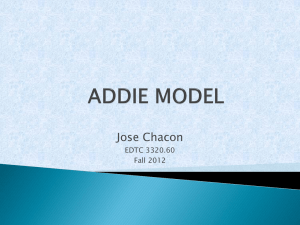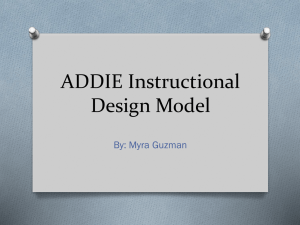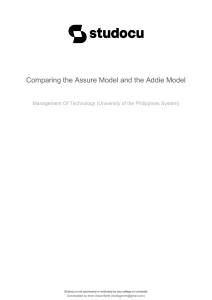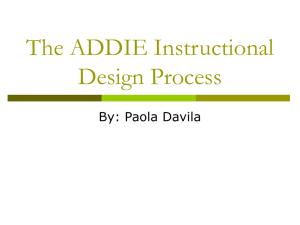The ADDIE Instructional Design Model
advertisement
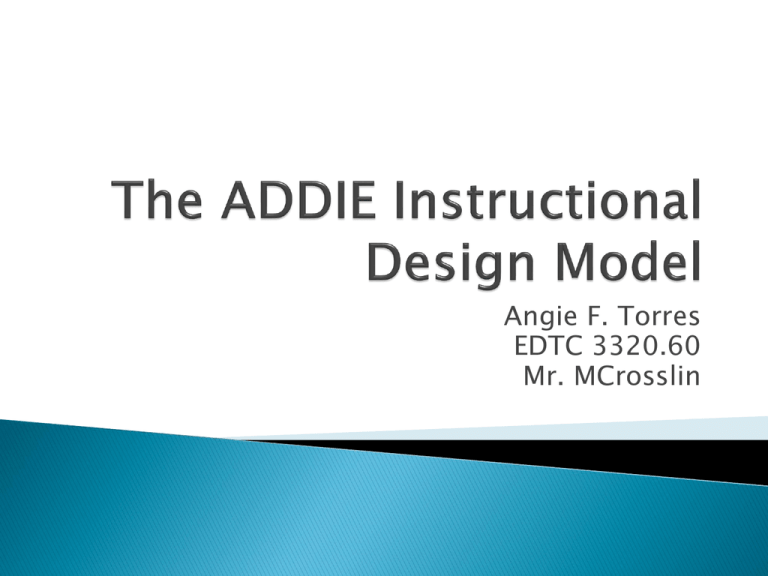
Angie F. Torres EDTC 3320.60 Mr. MCrosslin Is a step by step process that helps training specialist plan and create training programs. A = Analyze training needs D = Design training materials. D = Develop training materials. I = Implement training. E = Evaluate it’s effectiveness. Is the process for determining if there is a need for the training of: • business goals needed to be achieved. • materials needed to be taught. • learners current capabilities. • • • Project Sponsor’s-discuss business goals and objectives. Subject Matter Expert’s-describe undocumented knowledge. Target Audience –demonstrate their current skills and capabilities. • discover any existing materials. • define measureable business goals. • conduct an instructional analysis. • analyze learners and contents. • write learning objectives. will plan a strategy for developing the instruction by: • describing the overall learning approach. • identifying instructional media choices. • clustering and sequencing objectives. • describing course exercises, activities and assessments. • • • • check design concepts that are cohesive and complete. present proposed training solution to the client. invite feedback on the design. provide instructions to the specialist on the development phase of the project. is the process of authoring and producing all the materials or products in order to: • create a prototype (preview) of the final course. • develop course materials. • conduct a tabletop review, (face to face meeting to make sure content is accurately completed). • run a pilot session(chance to review final course). Is the process of launching the course and trying out the project or materials in the real world by: • meeting important business goals. • covering the content learner’s need to know. • reflecting the learner’s existing capabilities. Determines the effectiveness or measurement of how well the instruction or product achieved it’s goal by using: • Formative/Summative evaluation. • Short survey questioners. • Pre-test/Post tests. • Long-term evaluation. The ADDIE Model represents a formula whose variables must be defined by the unique needs and circumstances in which the process is being used. It ensures a consistent process for designing and developing highly efficient and effective system without sacrificing creativity. Analysis Evaluation Implementation Design Development • • • Introduction to Instructional Design and the ADDIE Model, Kruse, Kevin. Retrieved, June 4, 2010from: <http://www.elearningguru.com/articles/art2_1. html> Robert.“ADDIE ModelLearningTheories.” Retrieved, June 4, 2010 from: <http://www.learning-theories.com/addiemodel.html> The ADDIE Model. Retrieved, June 4, 2010 from: <http://en.wikipedia.org/wiki/ADDIE_Model>
